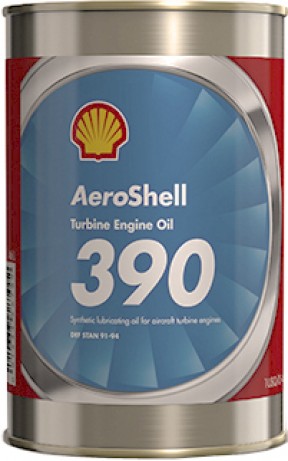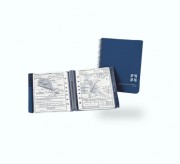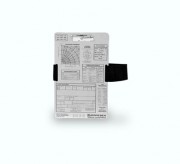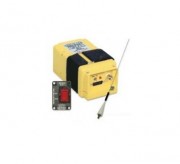 Shopping cart: 0
Shopping cart: 0 
|
|
AeroShell Turbine Oil 390 Oil for turboprop engines
Specifications
- For turbojet engines
- Additives to improve thermal and oxidative stability
- Improved version of oil for old British turbojet engines
- Analog VNII NP 50-1-4f, VNII NP 50-1-4u and 36 / 1Ku-A
- MIL - PRF - 23699G Grade STD
- SAE AS5780B Grade SPC
- DEF STAN 91-101 Grade 0X-27
- DCSEA 299 / A
- NATO Code O-156
- Shelf life 4 years
This aviation oil can be used as an analogue of domestic oils VNII NP 50-1-4f, VNII NP 50-1-4u and 36 / 1Ku-A. Complies with the DEF STAN specification 91-94. AeroShell Turbine Oil 390 is a synthetic di-ester oil that includes carefully selected and balanced aviation oil additives to improve thermal and oxidative stability and increase the performance of the base oil. Turbine Oil 390 was developed as an improved version of the oil for old British turbojet engines.
More recently, due to the low temperature characteristics of AeroShell Oil 390, this aviation oil was used for auxiliary power plants (APUs). Shell AeroShell Turbine Oil 390 is a 3-cSt synthetic di-ester oil incorporating a carefully selected and balanced combination of additives to improve thermal and oxidation stability and to increase the load carrying capacity of the base oil. Products such as ASTO 390 are commonly used in the APUs of four-engine intercontinental aircraft, but are now being considered for use in twin-engine aircraft. If a main engine fails, you need to have confidence that your APU will start reliably.
An aircraft’s extended range twin operations (ETOPS) certification^ is partly based on the reliability of back-up systems such as the APU. In the event of engine failure, the APU must make up for any reduction in electrical power. APUs are typically shut down when cruising. During this time, the oil can be cooled to less than –40°C. At this temperature, the viscosity of standard 5-cSt oil increases to about 10,000 cSt. This causes a large viscous drag that may result in a hung start. ASTO 390, with its much smaller viscosity increase of typically 2,000 cSt at –40°C, can help to improve cold-soak start-up reliability and thus maximise ETOPS times, as it has significantly lower viscosity at cold-soak start-up temperatures (–40°C) than a standard 5-cSt oil.
A product review from a pilot user said: “This shell aviation oil is what I highly recommend for pilots with turbojet engines aircraft. I can say that it can improve the stability of the engine. I bought it at the nearest aviation oil outlet.”
Buy and price
To buy lubrication AeroShell Turbine Oil 390, terms and conditions of purchase, please contact our Sales department. Having excellent working qualities and reasonable price, AeroShell Turbine oils are actively used in aviation.An aviation oil right for you turbojet engines. Turbine Oil 390 is set at a reasonable price at every aviation oil outlet.
Characteristics.
| Properties | DEF STAN 91-94 | AeroShell Turbine Oil 390 |
| Oil type | - | Synthetic ester |
| Density @ 15°С, kg/l | - | 924 |
|
Kinematic viscosity, mm2/s @ 40°С @ 100°С @ -54°С |
16,0 max 4,0 min 13000 max |
12,9 3,4 <13 000 |
| Pourpoint, °С | -60 max | -68 |
| Flashpoint, Cleveland Open Cup, °С | 225 min | 225 |
| Foam characteristics | Must pass | Passes |
| Trace element content | Must pass | Passes |
|
Elastomer compatibility, swell tests: - nitrile, % - viton, % - silicone, % |
14 - 26 15 - 25 16 - 24 |
Within range Within range Within range |
|
Solid particle contamination - sediment, mg/l - total ash of sediment, % |
10 max 1 max |
<10 <1 |
| Corrosivity | Must pass | Passes |
| High temperature oxidative stability | Must pass | Passes |
| Load carrying ability | Report | Passes |
Related goods and services






